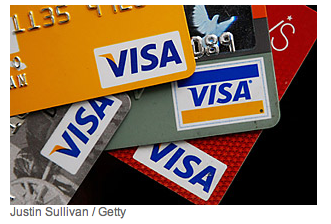How Will the Credit Card Act Affect Me?
 Courtesy of TIME
Courtesy of TIME
Have you ever seen your credit card’s interest rate be jacked up, out of the blue, for no apparent reason? You’re not alone, and a new law hopes to cut down on such unsavory practices. The Credit Card Accountability, Responsibility and Disclosure Act, signed by President Obama in May 2009, went into effect last fall. Many of the provisions, however, are finally taking hold on Monday, Feb. 22. This latest step in a three-part rollout will continue the Obama Administration’s quest to eliminate predatory lending by banks and make the overall process of using and paying off credit cards much more transparent — and far less perilous for individual credit histories.
Among other changes, the new law will:
• Require credit-card companies to tell customers when they plan to increase rates or other fees.
• Mandate standard payment dates and times, to keep companies from tripping you up into late charges by moving your due date.
• Limit fees such as charges for exceeding your credit limit or paying your bills online or over the phone.
• Mandate that monthly statements clearly show how long it would take to pay off your balance by paying the minimum due each month.
• Curb interest-rate hikes by prohibiting credit-card companies from retroactively raising rates on existing balances until the customer is 60 days behind on payments.
• Forbid credit-card companies from automatically enrolling customers in often pricey programs that offer the option to charge beyond the credit limit.
• Crack down on marketing campaigns targeting college students and other young adults, requiring anyone under age 21 who wants a credit card to either demonstrate the means to pay the debt alone or get an adult to cosign on the account.
• Ban the practice of double-cycle billing, in which your creditor uses your average balance over the current and previous billing cycles rather than the previous one — a trick that can wind up costing you a pretty penny.


